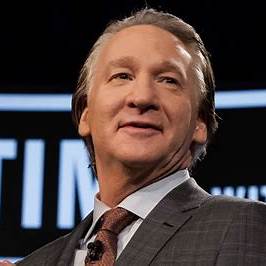Bill Maher is no stranger to sharp political commentary, but his recent applause for California Governor Gavin Newsom’s trolling of former President Donald Trump stood out as both amused approval and a recognition of a changing political strategy. On his HBO show Real Time, Maher said he had never seen a Democrat mock Trump in such a way, adding, “I think it’s very funny.”
Newsom’s team has leaned into parody by adopting Trump’s distinctive style on social media—caps lock declarations, over-the-top warnings, and name-calling wrapped in a dramatic flair. Instead of carefully crafted statements or standard political rebuttals, the governor has begun channeling the former president’s bombastic voice, effectively holding a mirror up to him. Posts shouted in all caps have lampooned Trump’s record, his polling, and even his allies, echoing the exact rhythms and phrases Trump himself has made famous.
The result is something Democrats rarely attempt: fighting Trump with the very weapons he popularized. Rather than responding with policy-heavy counterarguments or long speeches, Newsom has dipped into Trump’s own playbook of spectacle. For Maher, this is not only entertaining but politically savvy. He described the approach as recognizing that some political battles are not won by outsmarting opponents but by out-performing them on the stage of public attention.
Newsom’s trolling comes at a moment when Democrats are experimenting with tone. For years, the party has largely tried to present itself as the adult in the room, the counterweight to Trump’s theatrics. But critics of that strategy argue that sober rebuttals rarely cut through the noise of social media, where entertainment and outrage dominate. By imitating Trump’s cadence and turning it against him, Newsom may have found a way to puncture the aura of inevitability that often surrounds the former president’s style.
The governor’s posts have been widely shared not only for their humor but also for the audacity of a sitting Democrat leaning into parody so aggressively. They have read like imitations so sharp that, at first glance, one might mistake them for actual Trump messages. But beneath the laughs lies a pointed political message. Newsom is essentially saying that Trump’s bluster can be mocked, turned upside down, and used against him.
Maher’s reaction reflects more than just his own comedic taste. It underscores a recognition that Trump thrives on a very specific kind of theater. To challenge him, Maher suggested, one has to embrace that theater rather than attempt to dismantle it with reason alone. He argued that in today’s climate, blunt force and spectacle often carry more weight than nuance, and Newsom’s trolling acknowledges that reality.
The timing of Newsom’s strategy is also significant. As Democrats prepare for a contentious election cycle, they face the challenge of not only defeating Trump but energizing their own base. Humor, parody, and spectacle have historically been tools for cutting through cynicism and mobilizing supporters. If Newsom’s trolling continues, it could become a model for how Democrats blend mockery with messaging.
Of course, there are risks. Some worry that by imitating Trump’s style, even satirically, Democrats risk normalizing the very behavior they criticize. Others argue that political discourse should aspire to rise above trolling rather than embrace it. But as Maher pointed out, sometimes the best way to puncture a balloon of bluster is with a pin of parody. If Trump has redefined the rules of communication, then refusing to play by those rules may be a disadvantage.
For Maher, the takeaway was simple: Democrats rarely lean into comedy as a weapon in politics, and when they do, it can be remarkably effective. He laughed at Newsom’s willingness to go where others have not, and in doing so, acknowledged that in an age when social media spectacle often outweighs substance, humor can be as sharp as policy.
Newsom’s trolling may ultimately be remembered less for the individual posts than for what they signify: a recognition that Trump’s dominance is as much about performance as it is about politics. By turning that performance back on him, Newsom has opened a lane that others in his party may soon travel. Maher’s applause suggests that, at least for now, the experiment has landed.
As politics barrels toward another divisive election, the exchange between Newsom and Trump highlights the strange reality of modern campaigning. It is not only about policy positions or legislative records but also about capturing the stage, dominating the conversation, and shaping the spectacle. In that realm, parody becomes power. For Maher, it was a moment worth cheering.




